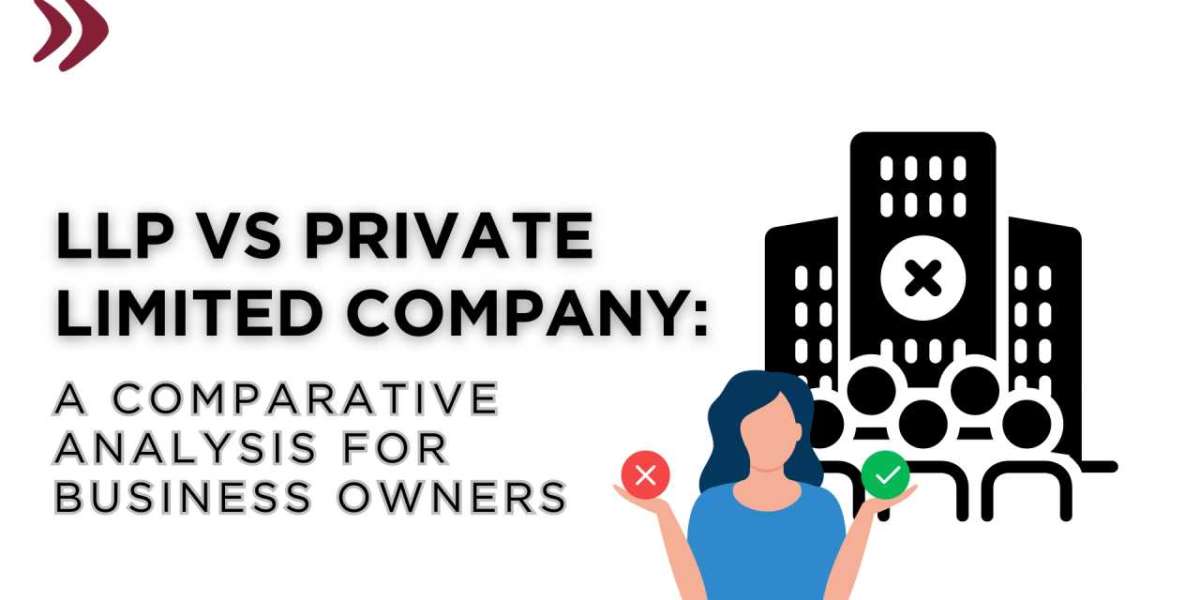Choosing the right business structure is crucial for entrepreneurs in India. Two popular options are the Limited Liability Partnership (LLP) and the Private Limited Company. Each has unique features, advantages, and regulatory requirements. Understanding these differences can help you select the structure that best aligns with your business goals. Here’s a detailed comparative analysis of LLPs and Private Limited Companies.
Understanding LLP and Private Limited Company
Limited Liability Partnership (LLP):
An LLP is a hybrid business structure combining the flexibility of a partnership with the benefits of limited liability protection. Governed by the Limited Liability Partnership Act, 2008, an LLP is ideal for businesses seeking operational flexibility and lower compliance costs.
Key Features:
- Limited Liability: Partners in an LLP have limited liability, protecting their personal assets from business debts.
- Flexible Management: LLPs offer a flexible management structure, allowing partners to run the business without adhering to stringent corporate governance norms.
- No Minimum Capital Requirement: Unlike a Private Limited Company, an LLP does not require a minimum capital to start, making it more accessible.
- Tax Benefits: LLPs enjoy pass-through taxation, meaning profits are taxed at the partner level, which can result in potential tax savings.
A Private Limited Company is a more formal business structure regulated by the Companies Act, 2013. It provides a structured approach to governance and shareholder management, making it suitable for businesses planning to expand or raise capital.
Key Features:
- Limited Liability: Shareholders' liability is limited to their shares, protecting personal assets from the company's liabilities.
- Separate Legal Entity: A PLC is a distinct legal entity capable of owning property, entering contracts, and engaging in legal proceedings independently of its shareholders.
- Regulatory Compliance: PLCs must adhere to rigorous regulatory requirements, including annual filings, maintaining statutory records, and conducting audits.
- Capital Raising: PLCs can raise capital by issuing shares, which facilitates business growth and expansion.
Comparative Analysis
1. Liability Protection
- LLP: Provides limited liability to partners, shielding personal assets from business liabilities.
- Private Limited Company: Offers similar protection to shareholders, with their liability limited to their unpaid shares. This is particularly advantageous for businesses with higher risk.
2. Flexibility vs. Structure
- LLP: Features a flexible management structure with fewer compliance requirements, ideal for businesses preferring less formal management.
- Private Limited Company: Requires adherence to a structured management and governance framework, which, while more bureaucratic, provides a clear operational structure.
3. Capital and Investment
- LLP: Generally does not have the ability to raise capital through public share issuance. Investment typically comes from partners or private sources.
- Private Limited Company: Can raise funds by issuing shares, making it easier to attract investors and support business expansion.
4. Taxation
- LLP: Profits are taxed at the partner level, which can provide tax advantages due to pass-through taxation.
- Private Limited Company: The company is taxed on its profits, and dividends paid to shareholders are subject to dividend distribution tax, potentially leading to a higher overall tax burden.
5. Compliance and Regulatory Burden
- LLP: Subject to fewer regulatory requirements, making it a simpler and cost-effective option for smaller businesses.
- Private Limited Company: Must comply with extensive regulatory requirements, including audits, annual returns, and maintaining corporate records, which can involve higher administrative costs.
6. Ownership and Transferability
- LLP: Ownership changes require the consent of all partners, making the transfer of ownership more complex.
- Private Limited Company: Shares can be transferred relatively easily, subject to the company's articles of association, facilitating investment and succession planning.
Conclusion
Deciding between an LLP and a Private Limited Company depends on various factors, including your business size, growth plans, and management preferences. An LLP offers flexibility, fewer compliance requirements, and potential tax benefits, making it suitable for smaller or partnership-driven businesses. Conversely, a Private Limited Company provides a structured framework, easier access to capital, and robust liability protection, supporting larger and more complex business operations.
Assess your business objectives and operational needs to choose the structure that aligns with your long-term goals. Whether you opt for the agility of an LLP or the formal framework of a Private Limited Company, making the right choice is essential for the success and sustainability of your business.








